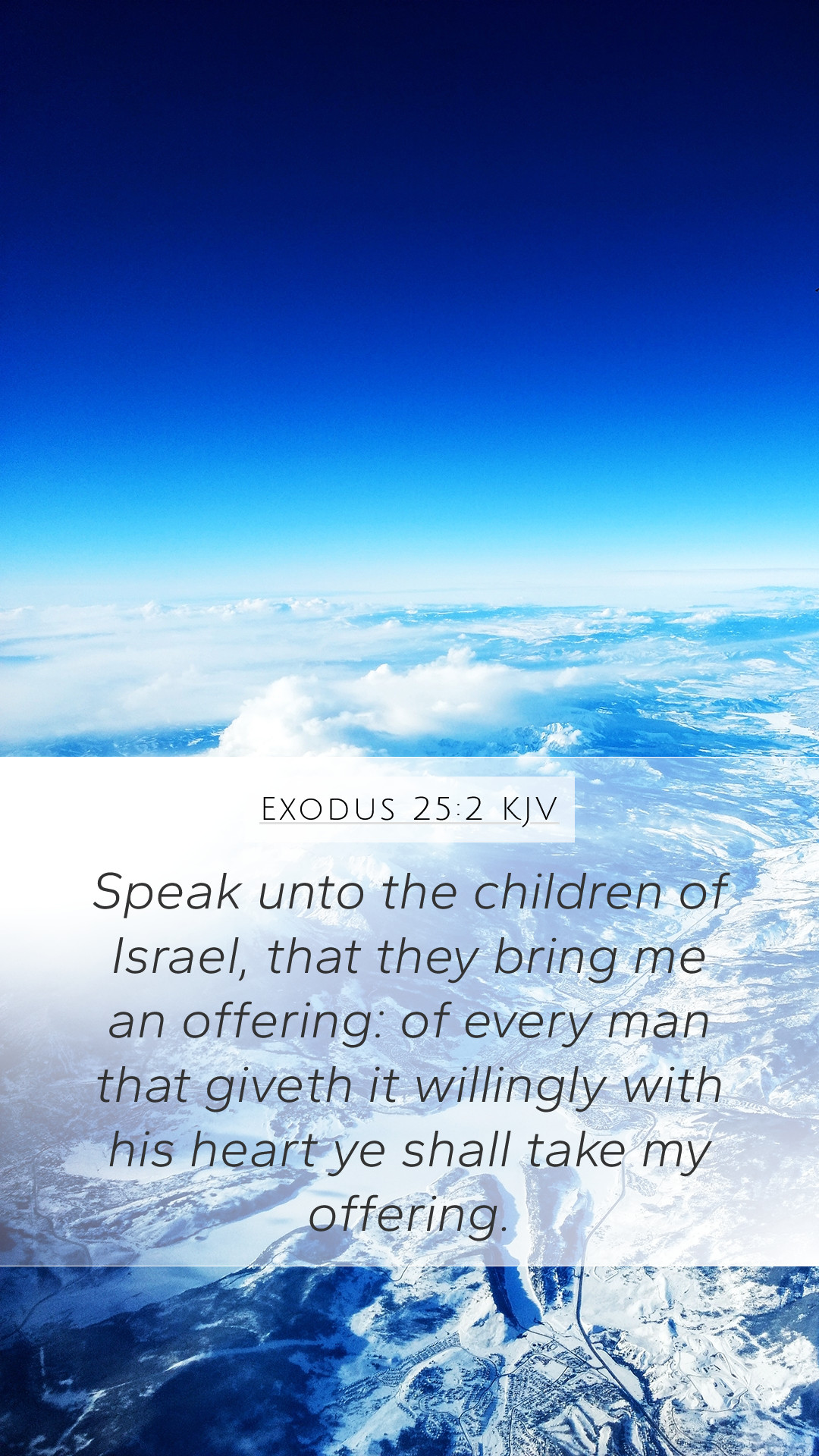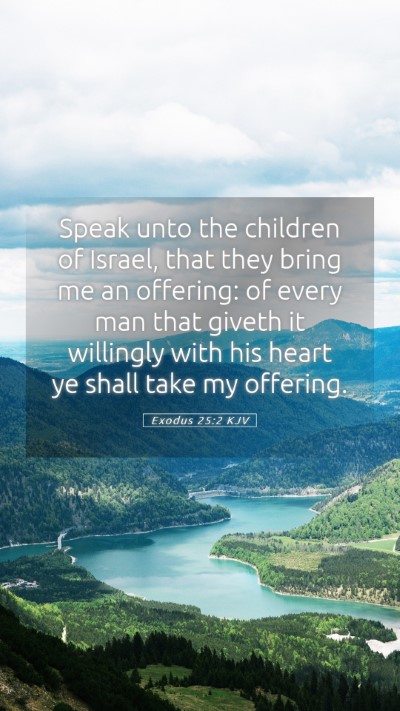Understanding Exodus 25:2
Exodus 25:2 states, "Speak unto the children of Israel, that they bring me an offering: of every man that giveth it willingly with his heart ye shall take my offering." This verse addresses God’s command regarding contributions to the Tabernacle. To fully grasp its implications, we shall examine the meanings, interpretations, and explanations from renowned public domain commentaries such as Matthew Henry, Albert Barnes, and Adam Clarke.
Contextual Background
This verse appears within a pivotal section of Exodus where God instructs Moses on the construction of the Tabernacle. The Tabernacle served as a central place of worship for the Israelites, symbolizing God’s presence among His people. Understanding this context is crucial for interpreting the call for a communal offering.
Detailed Commentary Insights
-
Matthew Henry’s Commentary
Henry emphasizes the significance of the offering being voluntary. He notes that true offerings should stem from a willing heart, reflecting genuine devotion rather than obligation. This implies that God desires a relationship built on love and willing service rather than mere compliance.
-
Albert Barnes’ Commentary
Barnes highlights that God’s invitation for contributions demonstrates His grace. By allowing individuals to contribute according to their capacity, it enables a communal involvement in the sacred endeavor of constructing the Tabernacle. He also stresses the importance of the heart’s intention behind the offering, reinforcing the teaching that God prioritizes the spirit of giving over the amount given.
-
Adam Clarke’s Commentary
Clarke adds that the term “offering” (or "heave offering") points to the act of giving something that is lifted up to God in recognition of His goodness. He underscores that the instruction serves as a reminder that all that the Israelites have ultimately belongs to God, thus encouraging stewardship and generosity among the faithful.
Thematic Elements in Exodus 25:2
-
Voluntariness: The call for a willing offering indicates an essential principle in biblical giving. True worship involves a heartfelt response to God's grace.
-
Community Engagement: The emphasis on contributions from all (i.e., “every man”) reflects a collective responsibility in worship and sustaining the community’s spiritual life.
-
God’s Desire for Relationship: This command illustrates God’s yearning for a close relationship with His people, where offerings reflect the spiritual state of the heart rather than mere ritual practices.
Application and Reflection
In applying this verse to modern life, believers are encouraged to reflect on their own giving and generosity. It challenges contemporary Christians to consider their motivations behind contributions and service within their communities.
Practical Considerations
- Assessing one’s personal financial giving towards spiritual causes or community needs.
- Engaging in volunteer work with a joyful and willing heart.
- Participating in Bible study groups to explore deeper meanings of giving in Scripture.
Related Scriptures for Further Study
- 2 Corinthians 9:7 - “God loves a cheerful giver.”
- Leviticus 22:29 - Speaking of bringing a sacrifice willingly.
- Exodus 35:5 - Calling for contributions in building the Tabernacle.
Conclusion
Exodus 25:2 serves not only as a historical directive but also as a profound lesson on the nature of giving and worship. By reflecting on the insights from these commentaries, believers can gain a deeper understanding of Scripture and the meaning of Bible verses in their lives.
SEO Keywords and User Intent
This interpretation captures various essential keywords for those seeking deeper insights into Scripture such as Bible verse meanings, Bible verse interpretations, Bible verse understanding, and Bible study insights. Furthermore, it directly addresses inquiries like “What does Exodus 25:2 mean?” and offers reflection and application for individual believers.


